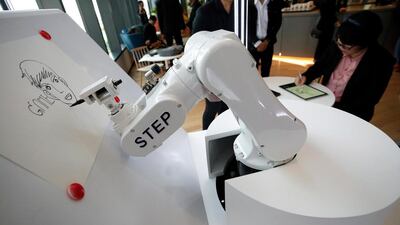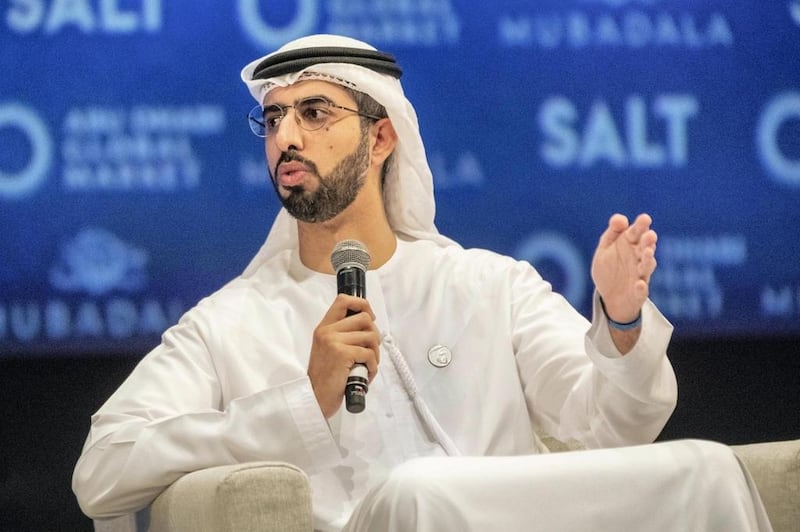Widespread adoption of artificial intelligence will boost the digital economy in the UAE, according to Omar bin Sultan Al Olama, Minister of State for AI, digital economy and remote work applications.
“We are working a lot on computer power and AI systems and infrastructure in the UAE … this is going to improve our digital economy,” Mr Al Olama said in an interview with CNN.
An uptick in the digital economy will also lead to new jobs in the Emirates, he added.
“If we actually improve and new jobs are created … new industries are created … we are not going to just cannibalise from the traditional economy,” Mr Al Olama said.
The UAE, the Arab world's second-largest economy, is projected to benefit the most in the region from AI adoption. The technology is expected to contribute up to 14 per cent to the country’s gross domestic product – equivalent to Dh352.5 billion – by 2030, according to a report by consultancy PwC.
The UAE will be followed by Saudi Arabia, where AI is forecast to add 12.4 per cent to GDP.
Mr Al Olama said the UAE government is working to ensure that digital economy does not have an adverse impact on current jobs or lead to a massive skills gap.

“This is the role of [the] government. We need to think about deploying AI in a way … [that] provides value and has the least number of jobs lost,” he added.
While deploying AI technologies and applications, the UAE government considers various factors such as its future impact, number of jobs that are generated and cost savings that can be reinvested in reskilling people, said Mr Al Olama, who was appointed as the country’s first AI minister in 2017.
“Governments exist to serve the people … to provide better livelihoods and to ensure the future is better … not just to deploy technologies for the sake of deploying,” he added.
Globally, Covid-19 is accelerating digitisation, especially in areas such as payments and retail.
According to a new survey conducted by YouGov, six out of 10 people in the UAE are in favour of the country’s economy becoming cashless. Such a shift comes as the pandemic spurred demand for contactless payments.








